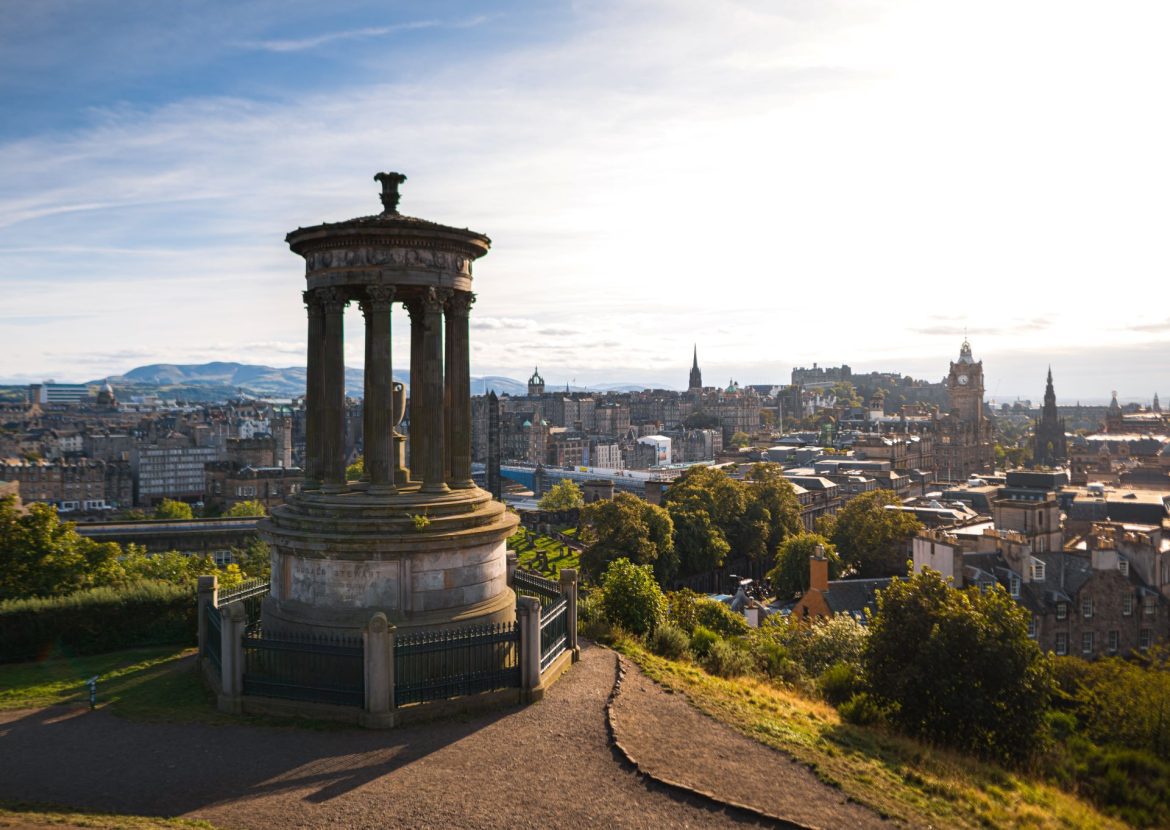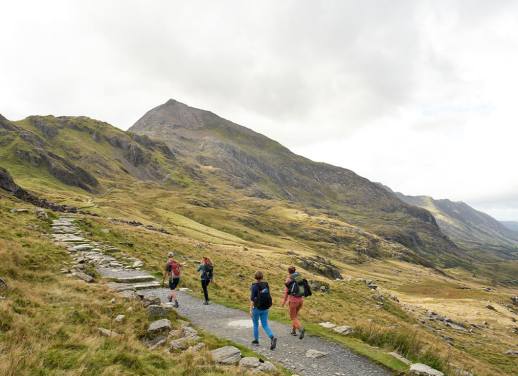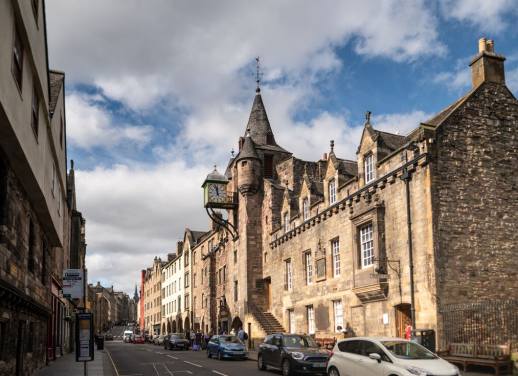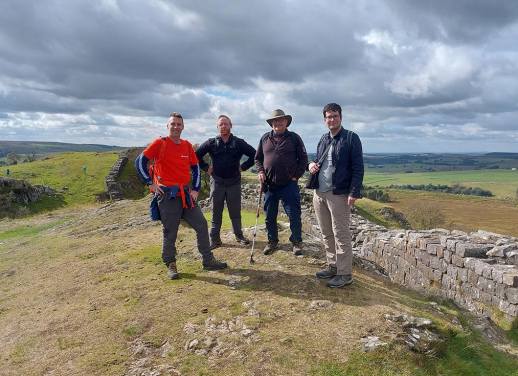Explore Edinburgh’s captivating history with Invisible Cities, where engaging guides who have experienced homelessness reveal the city’s lesser-known stories.
‘Did you know that there are more statues of animals in Edinburgh than there are of women?’
So begins Gayle, an Invisible Cities guide, on her Real Women of Edinburgh tour. On an Invisible Cities tour, you won’t be regaled with lists of years and dates – or even kings and queens, unless there’s a particularly fascinating (or gory) story behind them. Instead of following a script, the guides design the tours themselves, around their own interests.
Invisible Cities is a tour company with a difference – not least because all of their guides have experienced homelessness at some point in their lives. This impactful experience is part of Intrepid’s brand-new Premium Scotland trip, offering travellers a unique take on the Scottish capital.
Zakia Moulaoui started Invisible Cities in 2016. Previously, she worked for Edinburgh’s Homeless World Cup Foundation, helping to organise their annual tournaments.
‘It made me realise that we could make a positive impact, even with something that was not obvious practical support,’ she says. ‘I saw how people took pride in how they made an effort to change their lives. After I left, I wanted to create something that did the same, but without the sports element, because I’m not into that.’
‘Between 2016 and 2018, this was a side hustle – it was very ad hoc,’ says Zakia. ‘But in 2018, I started getting approached by people who said, ‘Oh, do you want to launch in Glasgow? Do you want to launch in Manchester? Because we think it’s a great idea.’
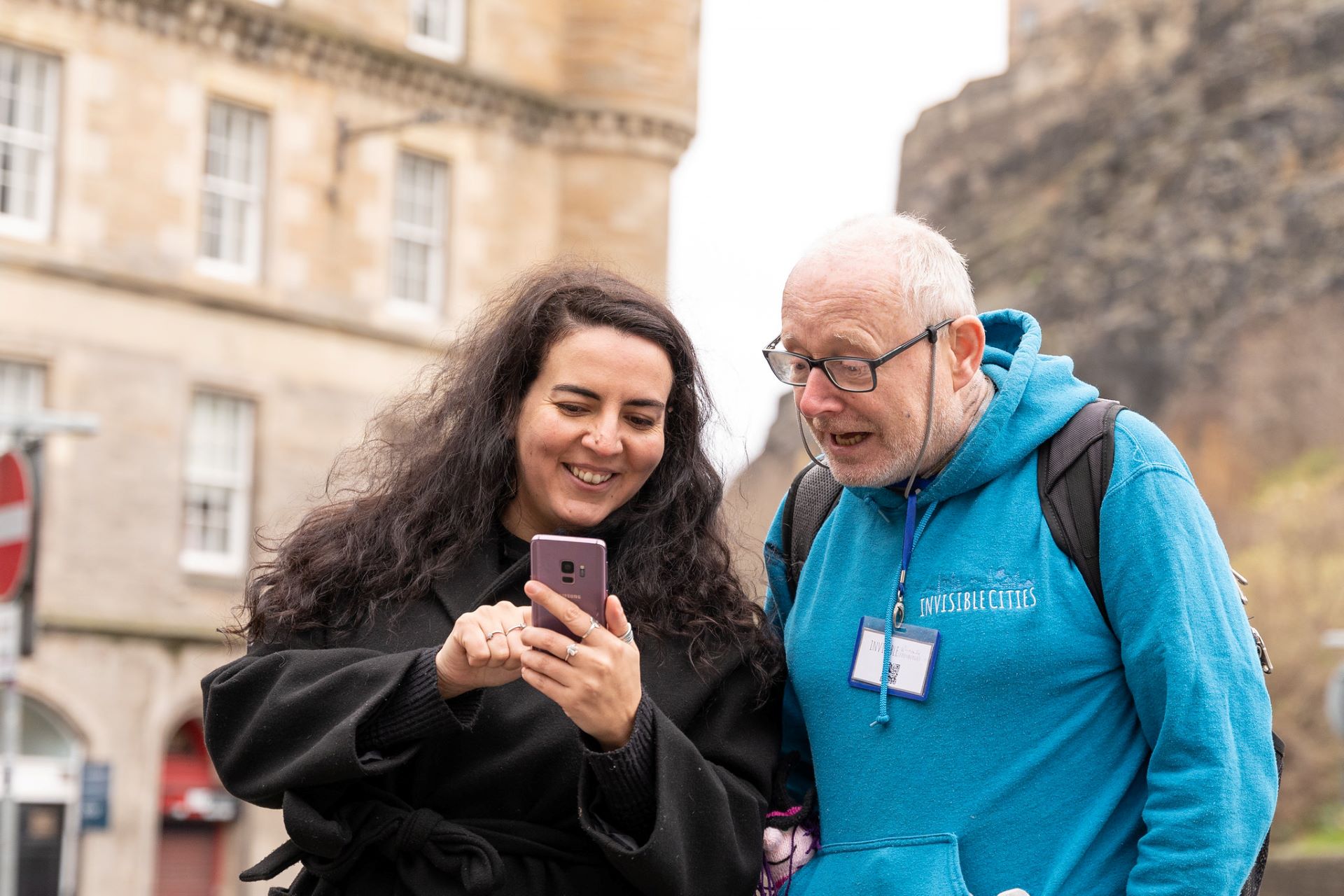
Invisible Cities now operates in six cities around the United Kingdom, with tours as diverse as the people who give them. In Edinburgh alone, travellers can choose from themes such as Crime and Punishment, History of Witchcraft and Queer History. And, of course, Gayle’s Real Women of Edinburgh tour.
Beginning our tour in Edinburgh’s 14th-century Grassmarket – once the place for public executions – Gayle opens with the story of Maggie Dickson, who was hanged in the square after being convicted of infanticide (which she denied). Somehow, she survived the hanging, waking in the coffin hours later. She was allowed to live and was known henceforth as ‘Half-hangit (half-hanged) Maggie.’
Overall, it seems that Edinburgh’s women got a raw deal back in the day. When we arrive at Edinburgh Castle, Gayle ignores an inundated tourist hotspot and instead shows us the nearby Witches’ Well. There, a plaque and a small Celtic Revival-style fountain commemorate the hundreds of women who died in the witch trials of the 16th and 17th centuries. ‘The reasons for conviction included practising herbal healing or midwifery – or having Alzheimer’s or dementia,’ says Gayle.
Touring beyond the typical
Other plaques – unseen by the swell of crowds below – include that of Elsie Inglis, a doctor and suffragist who opened a hospital for women and children in Edinburgh. During the Second World War, she founded female-staffed hospitals on the front line. She personally led a medical team in Serbia, becoming the first woman to receive the Order of the White Eagle, the highest Serbian honour for heroism. Following a fundraising campaign in 2022, a statue of her is to be built – the first statue of a named woman on the Royal Mile, the city’s main thoroughfare.
Now and again, Gayle inserts information about Edinburgh’s homeless population, pointing out details like homeless charities that line the lower half of the Royal Mile – something that had previously escaped my notice. Zakia had told me this would be a feature of the tours.
‘It’s never doom and gloom, though,’ Zakia says. ‘It needs to be an entertaining, interesting experience for the guest. You’re on your holiday, we’re not going to depress you for the rest of your life.’
At St Columba’s Church, Gayle tells us about the Sparkle Sisters initiative, originally set up by Invisible Cities but now run as an independent charity by the church. Every three months, Sparkle Sisters put on Pamper Nights for women affected by homelessness, where they can get free haircuts, manicures, sanitary products, clothes and toiletries. Gayle found out about Invisible Cities by attending one of these events, eventually deciding to join as a guide.
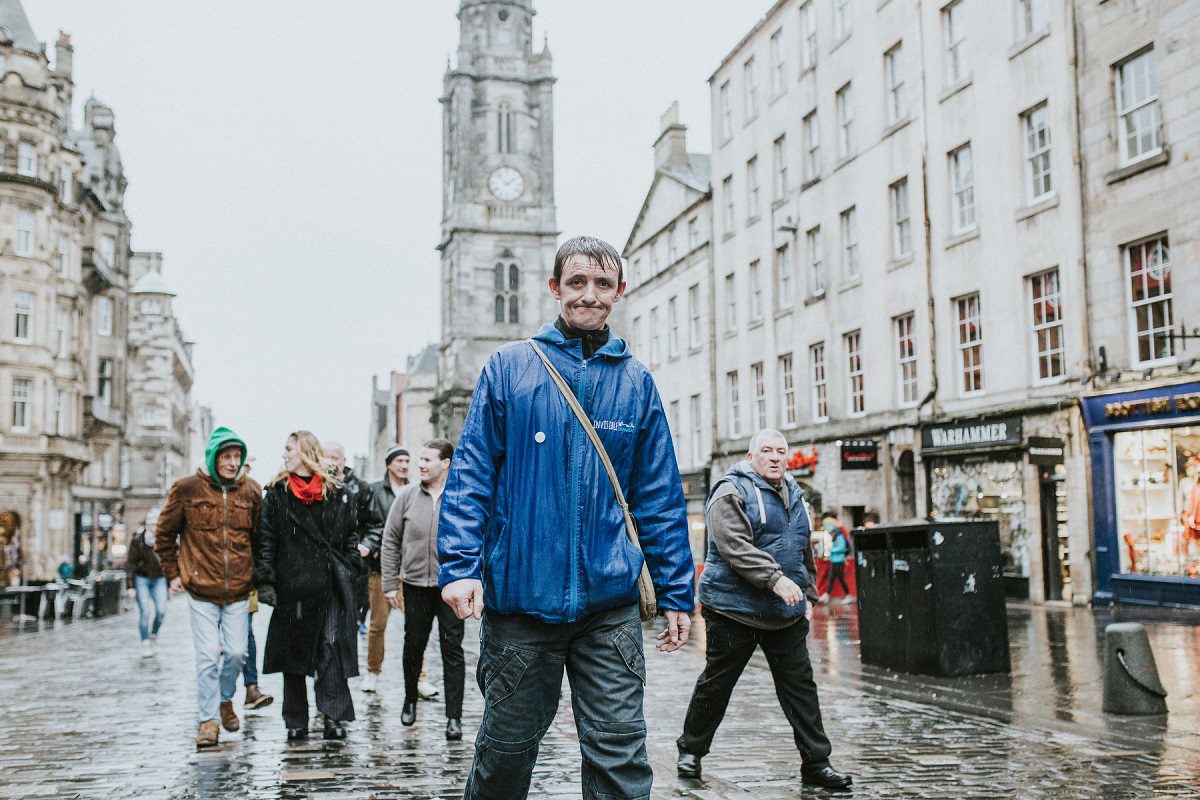
Unlike other entry-level jobs that might be available to them, Invisible Cities guides are free to work as much or as little as they want. They also receive extensive training to build up their confidence and help them to craft their custom tours. ‘We had first-aid training, customer service training and public speaking training,’ Gayle tells me.
Invisible Cities’ employees are also actively encouraged to leave. ‘That’s the idea – that people should move on,’ says Zakia. ‘The guides have one-on-one meetings with a support person, and one of the questions we ask them is, “What do you want to do?” And we go through what a pay slip is, and what taxes are and how they work.’
Many go on to work in hospitality or set up their own businesses. Some become full-time guides for Invisible Cities; when tips are factored in, they can earn a considerable wage. Others move on to other tour operators. ‘We’re always super happy when the guides get poached by others,’ says Zakia. ‘One of our former guides is now working full-time as a tour leader for a big company, taking 7-to-15-day trips around Scotland.’
Gayle, for her part, has no plans to leave just yet. ‘I quite like the tours for now, just having more independence and more money,’ she says. ‘So, I’m gonna stay with it.’
Discover this new experience and more on Intrepid’s new Premium Scotland trip. Find out what else is new for 2025 with The Goods.

